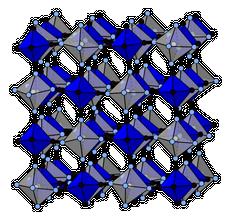Speaker
Description
Constrained big-box modelling of Prussian blue analogues
$^1$*E. A. Harbourne, $^1$J. Cattermull, $^1$N. Roth, $^2$David A. Keen, $^1$A. L. Goodwin
$^1$Inorganic Chemistry Laboratory, South Parks Road, Oxford, OX1 3QR, United Kingdom
$^2$ISIS Facility, Rutherford Appleton Laboratory, Harwell Campus, Didcot, OX11 0QX
$^1$elodie.harbourne@hertford.ox.ac.uk, University of Oxford, United Kingdom
Prussian blue analogues (PBAs) are a compositionally diverse family of materials with applications as potassium-ion cathodes 1, heterogeneous catalysts [2], and gas-storage media [3,4]. Their structures are based on a simple cubic network of cyanide-linked transition metals. Despite this simplicity, they harbour a wide variety of different distortions and defect structures [5]. We have a longstanding interest in seeking to understand the nature of these defect structures and their implications for materials properties.

This contribution will describe a recently-developed Monte Carlo-driven big-box modelling approach, which we are using to develop atomistic representations of the canonical PBA system Mn[Pt(CN)6] by refining against X-ray pair distribution function measurements and conventional X-ray Bragg diffraction patterns. Our implementation makes use of the TOPAS refinement software [6] and aims to minimise the number of structural degrees of freedom used during model development.
1 S. Dhir, S. Wheeler, I. Capone, M. Pasta, Chem, 6, 2442 (2020).
[2] C. Marquez, F. G. Cirujano, C. V. Goethem, I. Vankelecom, D. D. Vos, T. D. Baerdemaeker, Catal. Sci. Technol. 8, 2061 (2018).
[3] S. S. Kaye, J. R. Long, J. Am. Chem. Soc. 127, 6506 (2005).
[4] L. Hu, P. Zhang, Q. W. Chen, N. Yan, J. Y. Mei, Dalton Trans. 40, 5557 (2011).
[5] J. Cattermull, M. Pasta, A. L. Goodwin, Mater. Horiz. 8, 3178 (2021).
[6] A. A. Coelho, TOPAS-Academic, version 6 (computer software); Coelho Software: Brisbane, 2016.

